How War Is Peak Capitalism
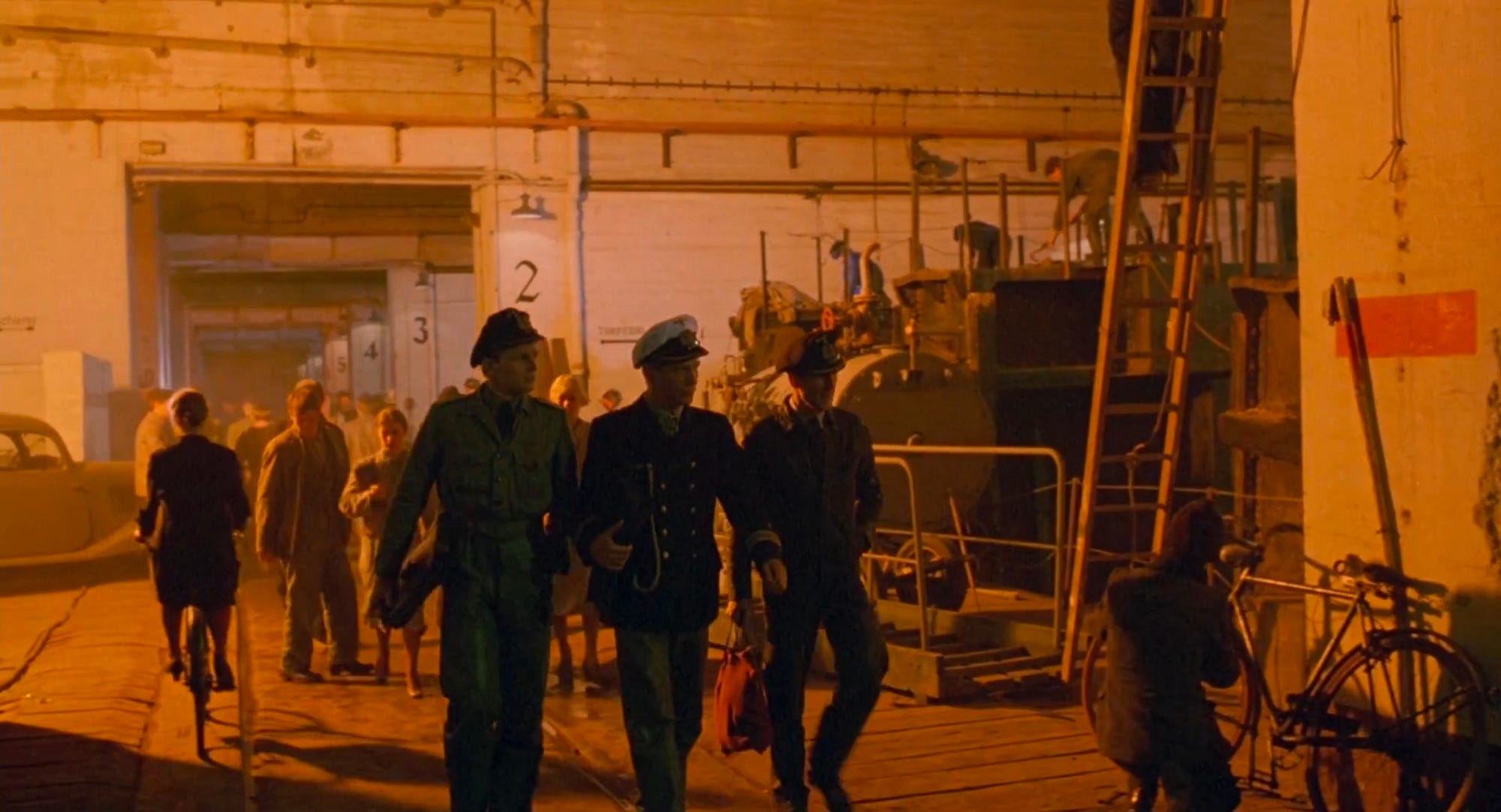
Das Boot (1981) somehow has you rooting for Nazis because there’s no ideology underwater. It’s all about the titular boat, a submerged piece of capital machinery that workers are forced to kill or be killed inside. The men are just men, trapped inside a machine. Das Boot is really a capitalist horror story.
As a brief summary, Das Boot is about the crew of a German U-Boat in World War II, deployed out of France to harry British shipping. They’re trying to sink other boats, and other boats are trying to sink them. Their greatest enemy is probably the high command, which sends them into impossible situations. This is the nature of industrial warfare (perhaps warfare in general), where men are just part of a machine.
Industrial warfare is an exercise in peak capitalism. It marshals all the resources of nations to destroy those resources over and over, until someone achieves a monopoly on violence. It’s machinery actively killing workers, not just incidentally. It’s capital immediately destroying the world, not a few decades later. You can see this across modern warfare, but nowhere more horrifically than inside a submarine (technically a submersible, but bear with me). The poor crew of Das Boot are truly in the belly of the beast.
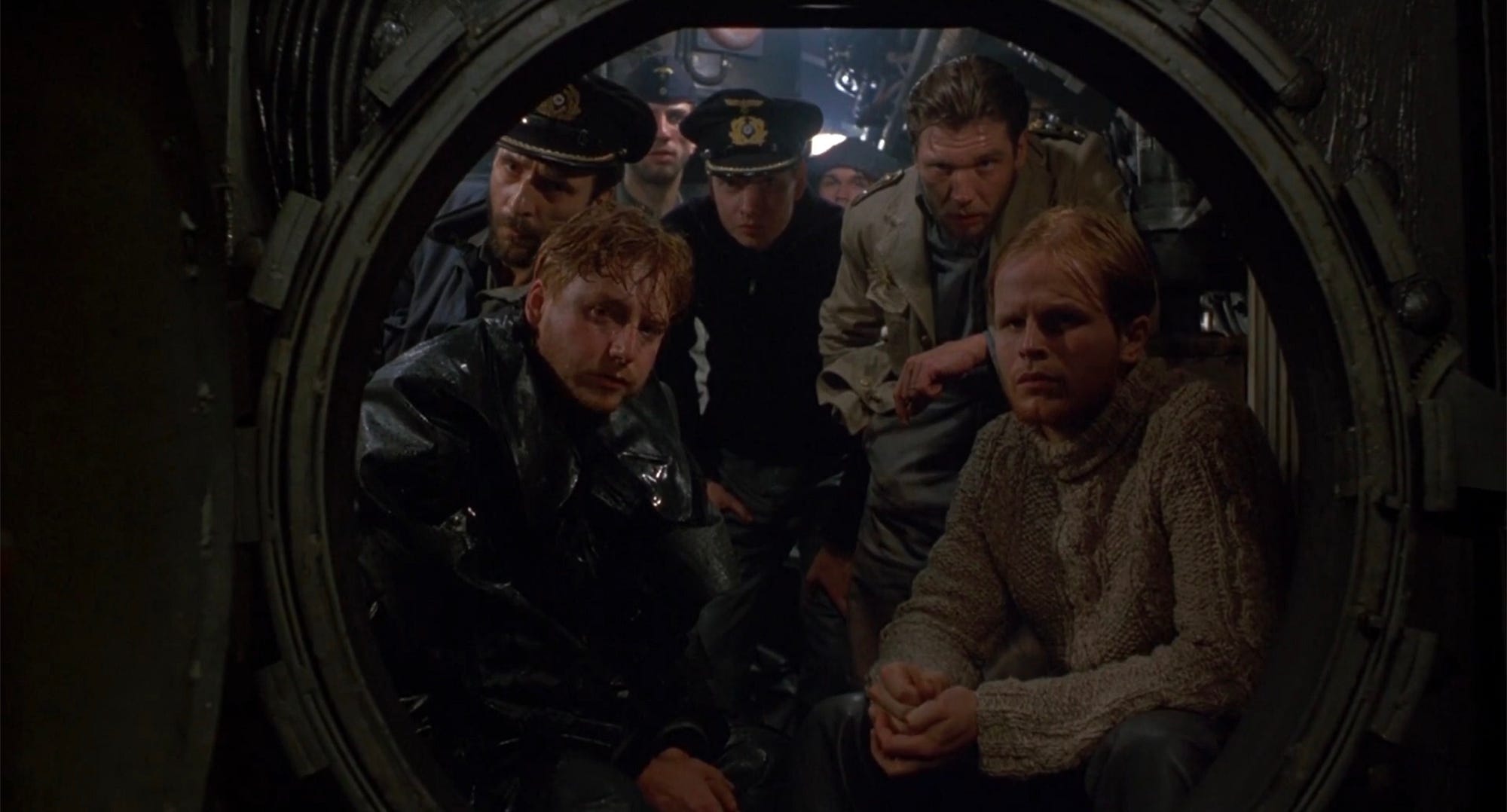
What Is Capital?
You can define capital very broadly as ‘things that make things’. Those ‘things’ can be other capital machinery, goods to be used, or services. Capital manipulates the environment in some way, and it reproduces itself in some form. It might feel weird, but the simplest way to understand capital is as an artificial species, tromping round the environment as much as you or me. This actually isn’t a novel interpretation, as Marx’s contemporaries described Das Kapital in as a sort of mechanical ‘origin of species’. As Sigmund Mayer wrote in 1871:
In short, economic life offers us a phenomenon analogous to the history of evolution in other branches of biology… The old economists misunderstood the nature of economic laws when they likened them to the laws of physics and chemistry. A more thorough analysis of the phenomena shows that social organisms differ among themselves as fundamentally as plants or animals…
The scientific value of such an inquiry lies in the illumination of the special laws that regulate the origin, existence, development and death of a given social organism and its replacement by another, higher one. And in fact this is the value of Marx’s book.”
The social organism they’re talking about here is the ‘whole thing’, ie capital in general. Das Kapital. But as a species (genus, really), capital contains many subspecies (corporations, factories, tanks, submarines) with frankly arbitrary borders in between. Like natural life, honestly. To understand this, it’s better to not get too complicated and just go back to your childhood.
When I was young, I used to think my parent’s van (Mr. Nissan) was alive. I was disabused of this idea as an adult, but now that I’ve thought about it, I think I was right the first time. Children are right to think cars, planes, and boats are living beings. They move, breathe, consume energy, and can act and even kill. They certainly have personalities.
What’s obvious to a child is denied by the prejudice of adults, but adults often deny consciousness to animals and even to children. The ‘rationality’ of adults is really about making us cogs in a machine, not perceiving things as they are. If you look at it with a child’s eyes, you can see the origin of species from genus Capital. Just draw eyes on any machine.
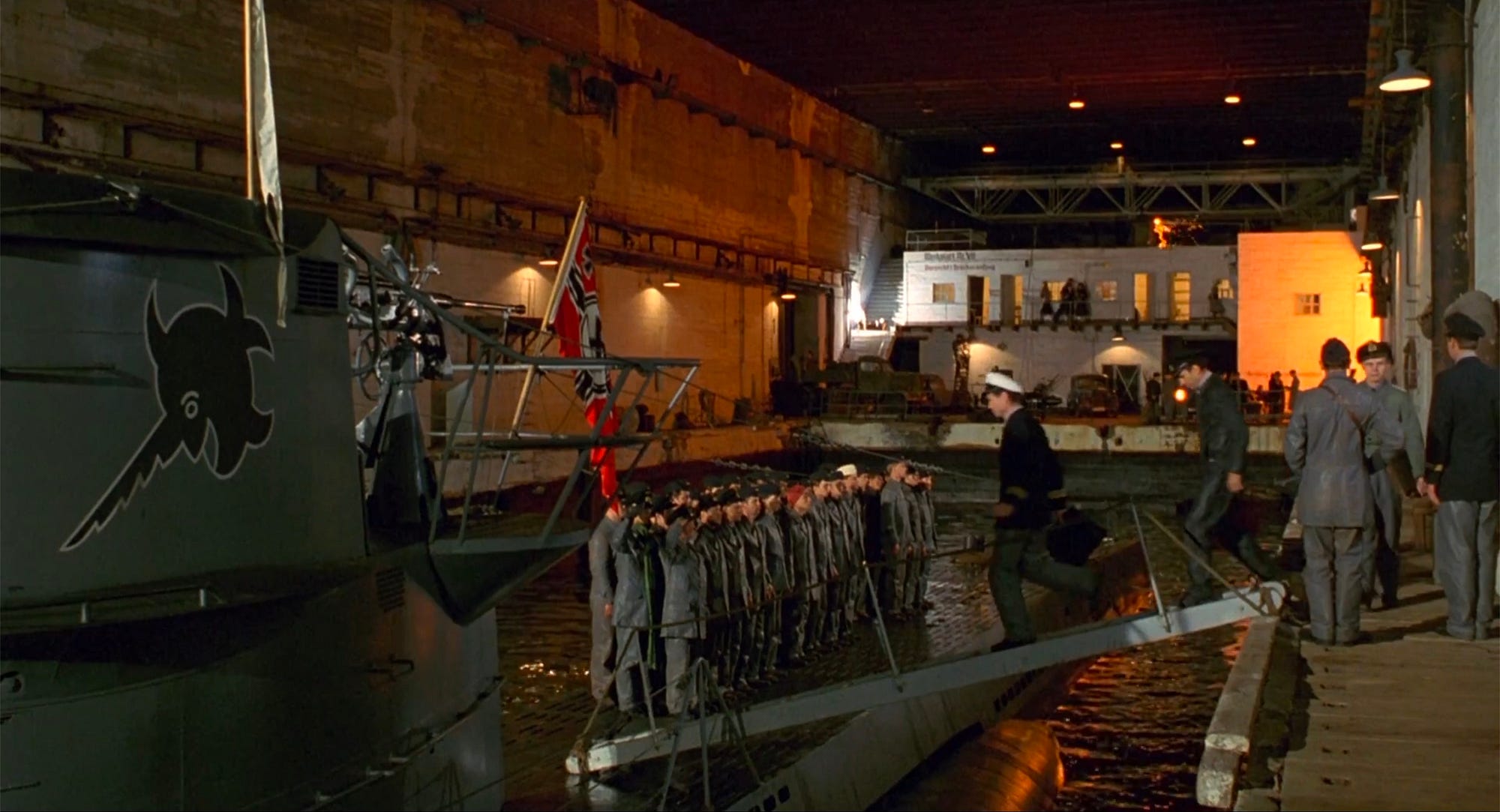
I used to think Mr. Nissan was alive largely because he had eyes (headlights), and even in Das Boot they draw eyes on the U-Boat to personify it. The sub is depicted as a smiling icon of a swordfish, with humanoid features. It’s imagined as living. Just as a child imagines. I argue that the child and the cartoonist both see correctly. The truth hides in plain sight, if you’re simple enough to take things literally.
But what sort of life is this? Where did it come from? Submarines don’t mate and Mr. Nissan didn’t meet Mrs. Nissan to produce baby Nissans. When we talk about capitalist reproduction, what are we talking about? How can something reproduce through another species? Isn’t that disqualifying? Well, then I guess humans are not much of a species either.
When you were born, a significant amount of viral DNA helps spin up the placenta, an honestly alien life form that keeps mothers from rejecting their own babies. And then the placenta is delivered along with the baby. It’s not quite human, and yet it’s necessary for human reproduction. There’s nothing new under the sun, and requiring help from another species to reproduce is not novel.
You could also say that Das Boot is not alive because it requires human beings for its basic bodily functions. But again, that disqualifies us as well. We require microbes to digest our food and even regulate our mood. We can’t even control our bowels and we act like we’re masters of the universe, lol. We’re a cosmic joke.
Biologically speaking, the human body is just a ‘ship’ built by oceanic microbes to travel on land. We maintain a controlled environment for semen just the sub does for seamen. We’re not so different, it and I. There’s also nothing new where the sun don’t shine.
Seamen understand this unconsciously because they refer to ships by human pronouns. A ship is ‘her’ or ‘she’. Sailors have a motherly relationship because the ship gives life to the man much more than the man gives life to the machine. Though they are symbiotic.
I could go on, but for the purposes of this essay, just look at Das Boot as a child would, or as a sailor clinging to her for dear life. See ‘the boat’ as a living being, part of a species of social organisms called Das Kapital. Proffered pronouns, she/her.
War Capitalism
As I said, industrial warfare is peak capitalism. Regular capitalism will kill workers and the planet slowly, but wartime capitalism does it actively and immediately (while someone makes obscene profits, naturally). If regular capitalism is a planetary cancer (infinite growth), wartime capitalism is a hideous outbreak that starts killing its hosts in droves.
Marx said, “The wealth of societies in which the capitalist mode of production prevails appears as an immense collection of commodities.” In the same way, the ruin of capitalist societies also appears as an immense collection of commodities, mainly expensive hunks of metal to hurl at each other from even more expensive machines. Live by capitalist production, die by capitalist production seems to be the axiom.
Only in wartime capitalism (and modern America) do you have machines regularly killing people and 75% of the people operating the damn machines. But this is the exact situation in Das Boot.
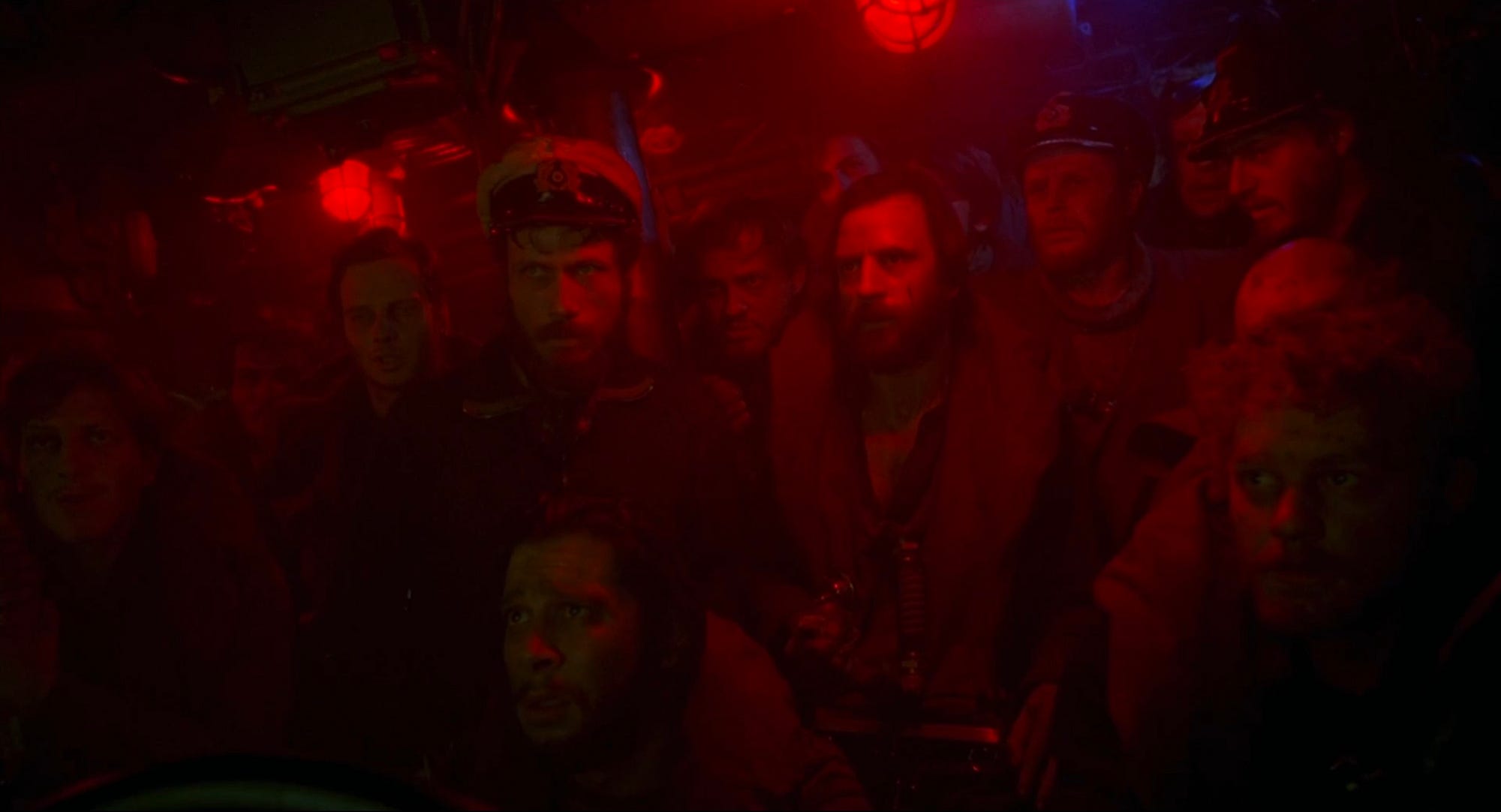
The extreme environment of the ocean draws the contradictions of capitalism into stark relief. Whereas the worker will slowly die if cast out of work, they will die rapidly if cast out of a submarine. Whereas work drains the days out of a person by halves, the submarine takes both nights and days. The conditions inside a good U-Boat are like that of the worst industrial housing. As a Dr. Embelton described Newcastle in 1865:
“The rooms, in which labourers in many cases live, are situated in confined and unwholesome yards or courts, and for space, light, air, and cleanliness, are models of insufficiency and insalubrity, and a disgrace to any civilized community; in them, men, women, and children lie at night huddled together; and as regards the men, the night-shift succeed the day-shift, and the day-shift the night-shift, in unbroken series for some time together, the beds having scarcely time to cool; the whole house badly supplied with water and worse with privies; dirty, unventilated, and pestiferous” (Dr Embleton, of the Newcastle Fever Hospital, 1865, via Marx)
This describes life inside a U-Boat, except the U-Boat is worse. In Das Boot, the men rotate bunks, share one toilet, and simply do not bathe for the entire tour. The place would reek of diesel and body odor and damp and death and fear. The Newcastle conditions are better because at least women and children existed, inside the submarine they’re just a memory, or a photograph if you were lucky. Life inside a living war machine is the death of the human spirit.
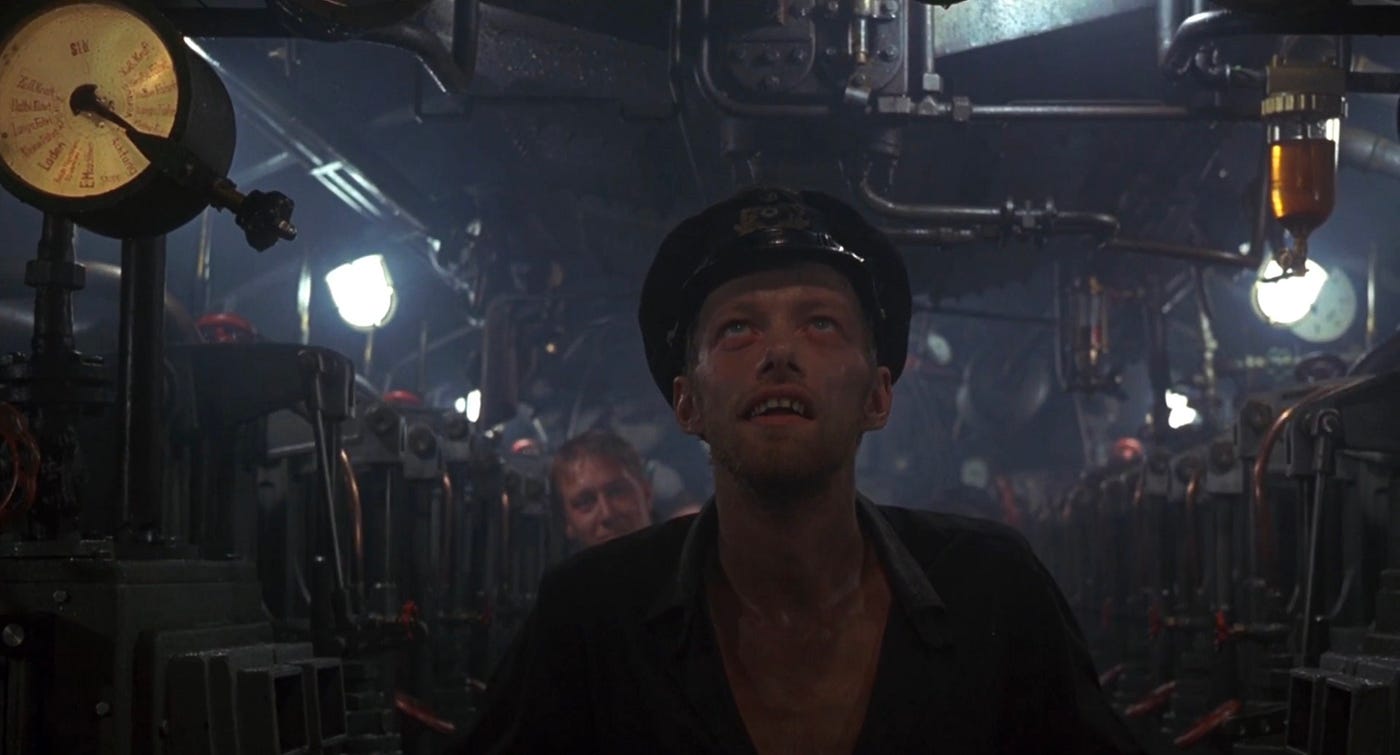
All of the bodily — nevermind the spiritual — functions of man are subjugated to the needs of the machine. Das Boot shows this by cutting from the back of the boat — where a few men feed the engines — to the front — where many men feed.
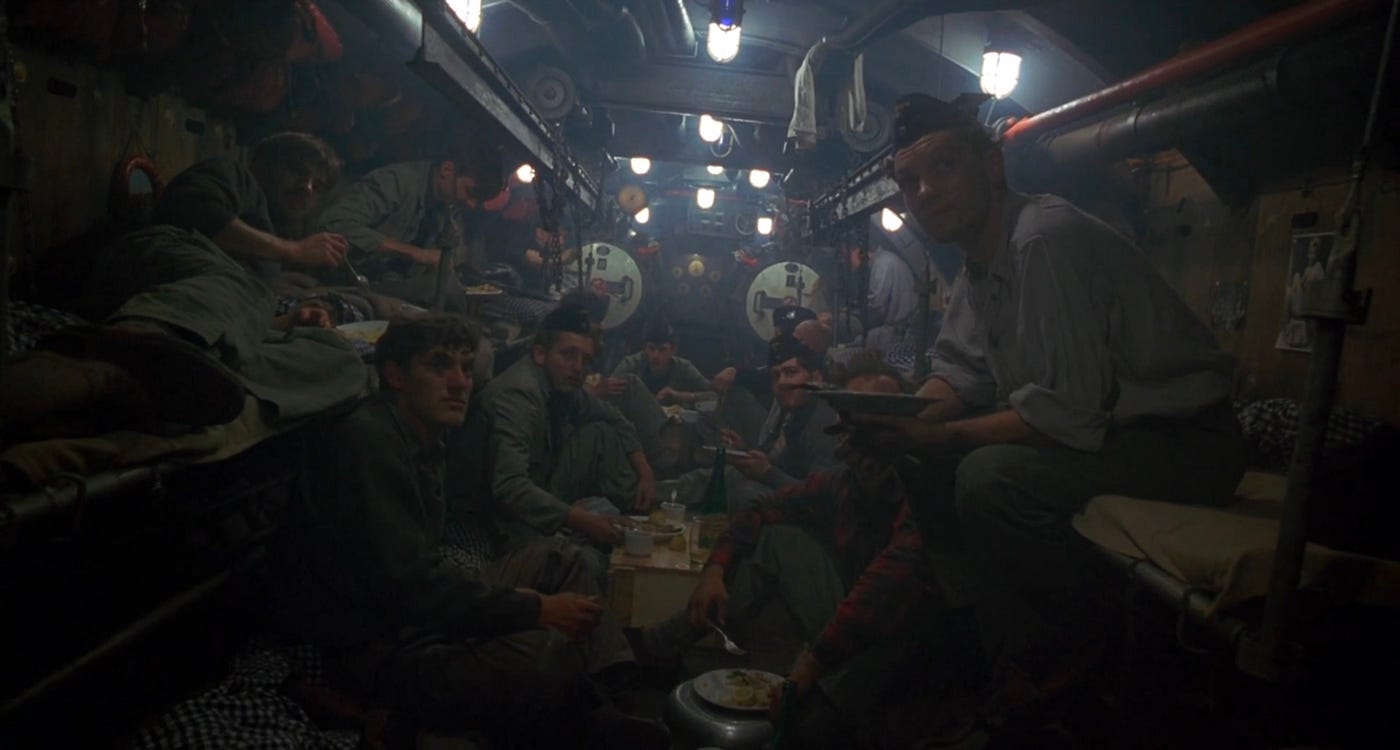
The men are expendable but the machine is indispensable. This is the general logic of capitalism, but under the sea it is an iron law. While a wage slave can maybe go to the next job, where can a submariner go? Any competing firms are literally trying to kill him and it’s that or the deep blue sea.
The Business Of War
As capital assets, what do these machines make? Well, they make war. They practice the most ‘perfect’ form of competition possible. The success of a U-Boat is measured in how much tonnage of enemy shipping it sinks, along with whatever crew have the bad luck to be caught up in that metabolic process.
Marx said, “The instrument of labour strikes down the worker,” and war capitalism takes this quite literally. Workers man instruments that kill other workers even if they don’t particularly want to. They just have to, in order to survive. The inexorable logic of capitalism, drawn to its brutal conclusion. Murder the competition or die trying.
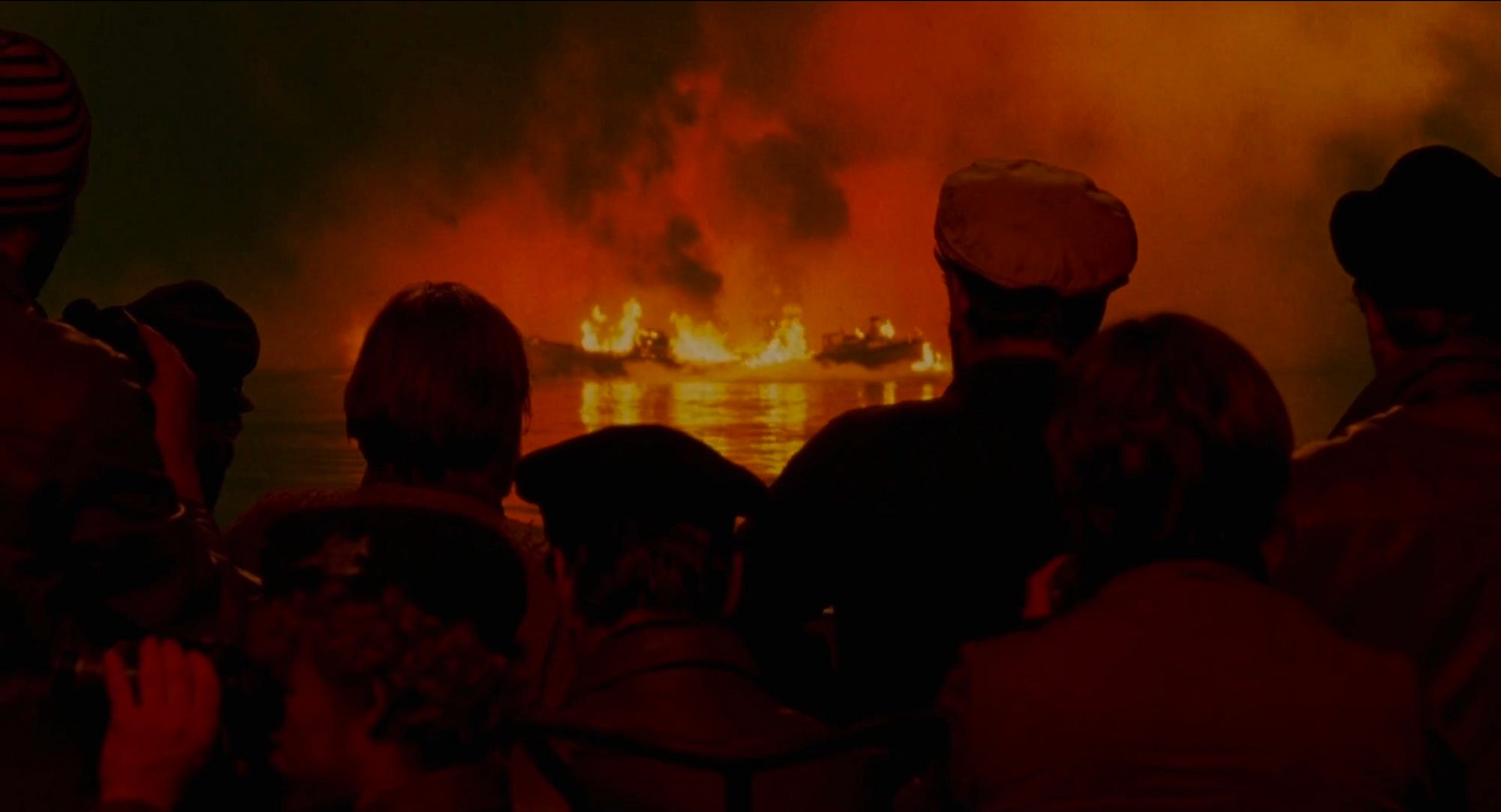
The reason you can root for the Nazis in Das Boot is that — with the exception of one eager schmuck — they’re not really Nazis. There’s no ideology in a gunboat, just survival. These kids are just Germans and they are, as the saying goes, just following orders. As their fellow German Karl said, “Their own movement within society has for them the form of a movement made by things, and these things, far from being under their control, in fact control them.”
These men are not in control any more than any nut or bolt in the submarine. They’re just extensions of a wrench, trying to hold the whole thing together. They’re really part of a cyborg machine, with no control over its direction. Even the captain can’t control where the war machine goes. Maybe Hitler is up there doing something, but that’s reductive. Even he’s a part of social relations between people, just as Marx described capital emerging. As he wrote:
The mysterious character of the commodity-form consists therefore simply in the fact that the commodity reflects the social characteristics of men’s own labour as objective characteristics of the products of labour themselves, as the socio-natural properties of these things. Hence it also reflects the social relation of the producers to the sum total of labour as a social relation between objects.
The workers trying to sink each other's boats in the Atlantic reflect the social relation of the producers of those objects, namely that those producers are at war with each other. War production is still production and — as generally destructive as it is — it’s still profitable for someone.
In Das Boot you can see the profitable side of war when the officers are invited to another boat (in Spain) for resupply. They are treated to a veritable smorgasbord of food after eating stale bread and living in each other's farts for weeks now. This is the producer's end of war.
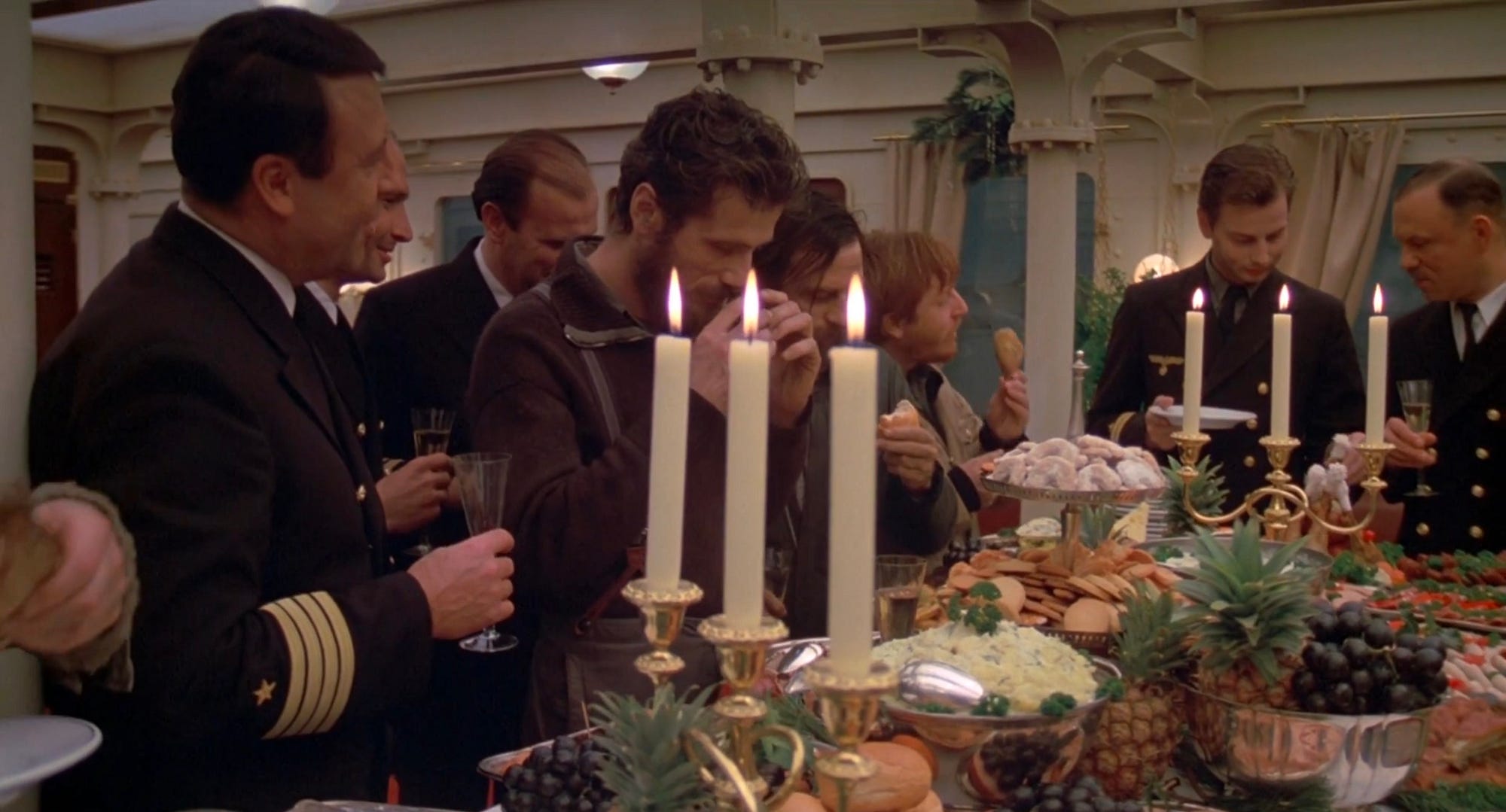
These men in nice jackets selling torpedoes and bananas are what Marx called ‘capital personified’. As he wrote:
As a capitalist, he is only capital personified. His soul is the soul of capital. But capital has one sole driving force, the drive to valorize itself, to create surplus-value, to make its constant part, the means of production, absorb the greatest possible amount of surplus labour. Capital is dead labour which, vampire-like, lives only by sucking living labour, and lives the more, the more labour it sucks.
The suppliers of capital equipment look healthy and hale compared to the bearded, haggard, and grey officers of Das Boot, who ultimately just laborers with stripes. Insomuch as the officers are part of the capitalist transaction, they can see what the life of a vampire is like, but then they have to go back to their very mortal lives and bleed.
While you could (and did) have communist war machines, practically there will always be some class closer to the production of death and another class which is the end consumer. We think of wars as battles between ideologies, but modern war has only one ideology, which is mass industrialization.
In Marx’s view, industrialization was just a natural process that was happening and you had to go through a period of capital formation before communism. Communism is a stage of evolution, you can’t just skip ahead. As Karl said, “Even when a society has begun to track down the natural laws of its movement — and it is the ultimate aim of this work to reveal the economic law of motion of modern society — it can neither leap over the natural phases of its development nor remove them by decree. But it can shorten and lessen the birth-pangs.” As Gramsci sorta said, “the old world is dying and the new world struggles to be born. Now is the time of monsters.”
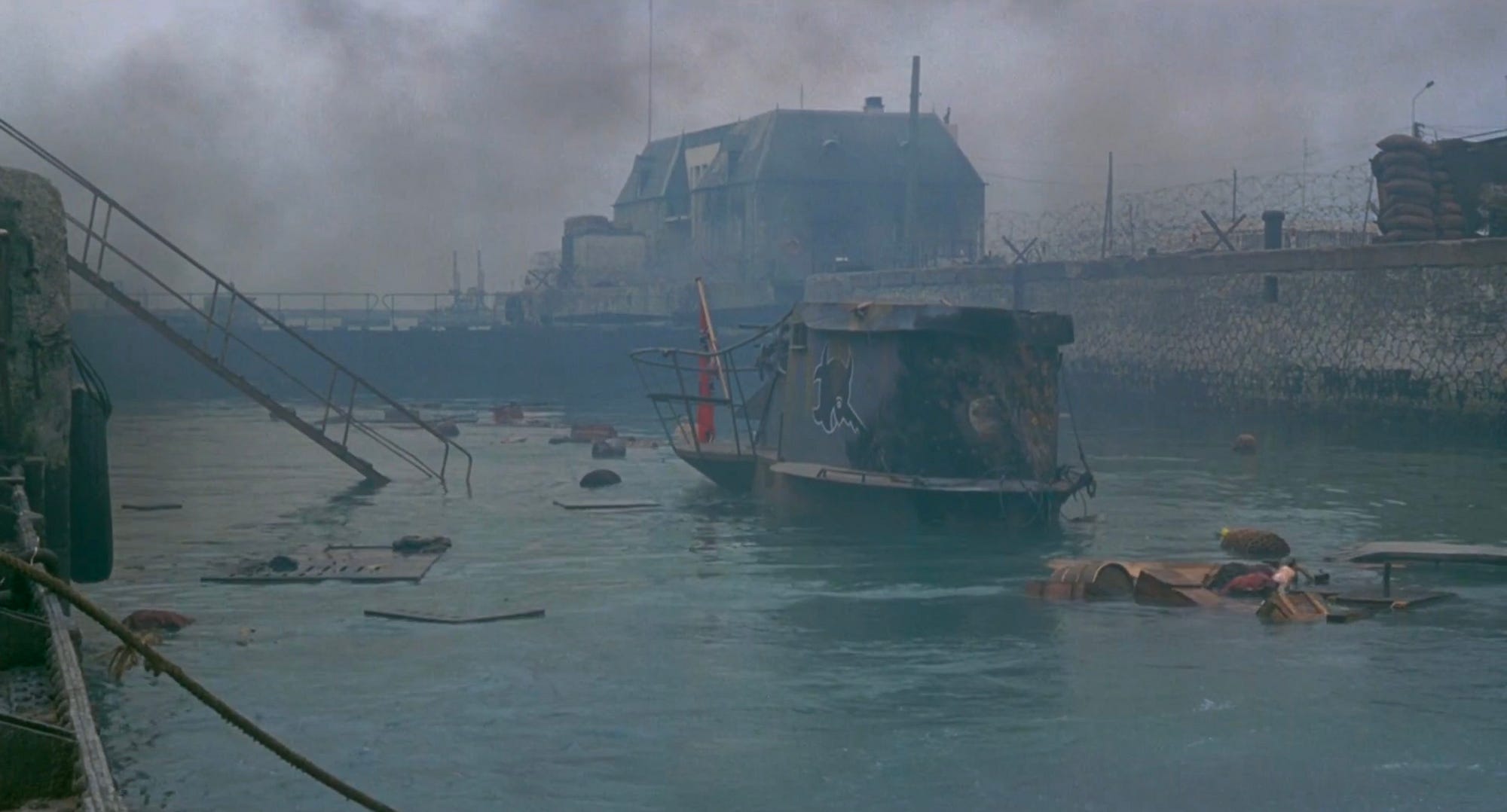
Wars End
War is ultimately a struggle over resources and industrial wars are fought with productive resources, ie capital. The side that can make the most war machines and lubricate them with the most blood of labor has the best shot of winning. It’s an explosive evolution with wild competition until the ecosystem stabilizes. That’s the world we live in today, full of artificial predators. They have much the same form as at the end of World War II, though we may be seeing another explosive evolution right now.
If some future or alien observer were to look at the fossil record of industrial wars, I doubt they’d know or even care about the ideology. What they’d see would be the skeletons of machines, the soft humans inside them long ago devoured and forgotten. Hence, it’s not about Nazis or Allies, or even Communists or Capitalists. It’s about Capital, the metallic, increasingly silicon-based lifeform which we are all stuck in the belly of, like so much insignificant bacteria. That’s the feeling you get in Das Boot. How helpless and hopeless the humans are in the face of industrial war. The war is really not about them. The lead actor of Das Boot is the boat and the humans are just props.